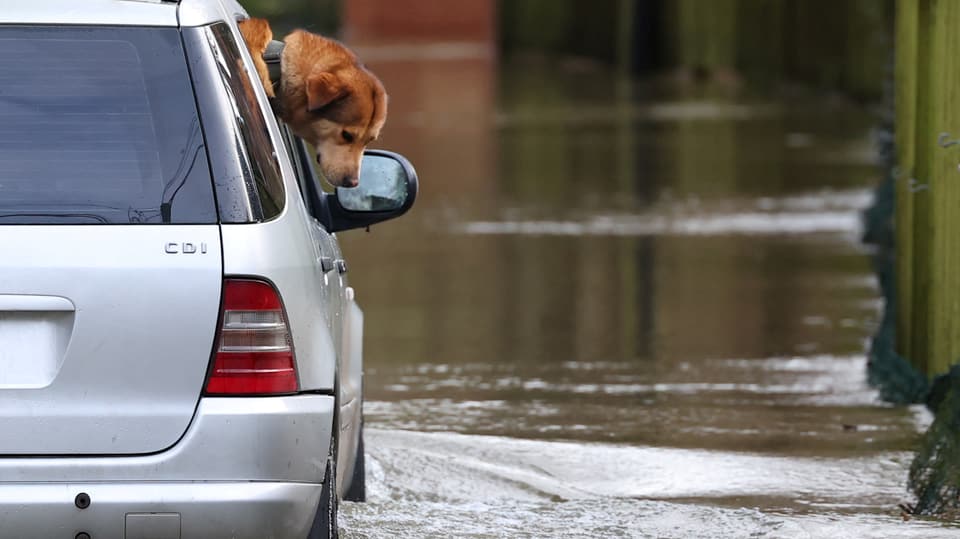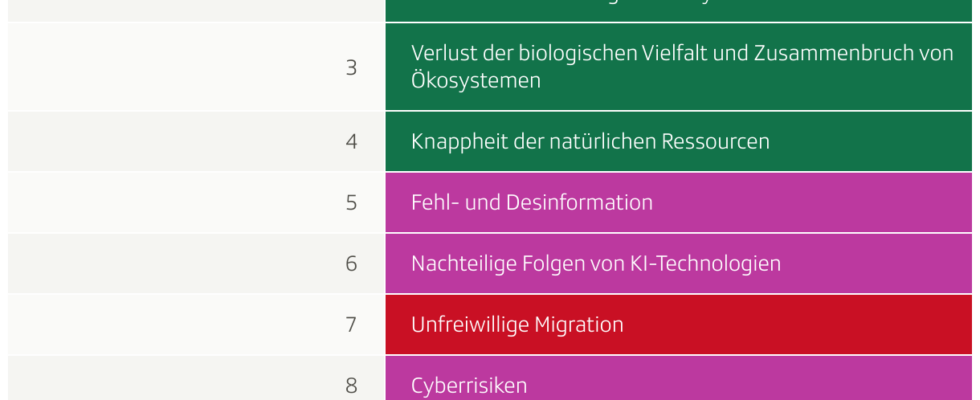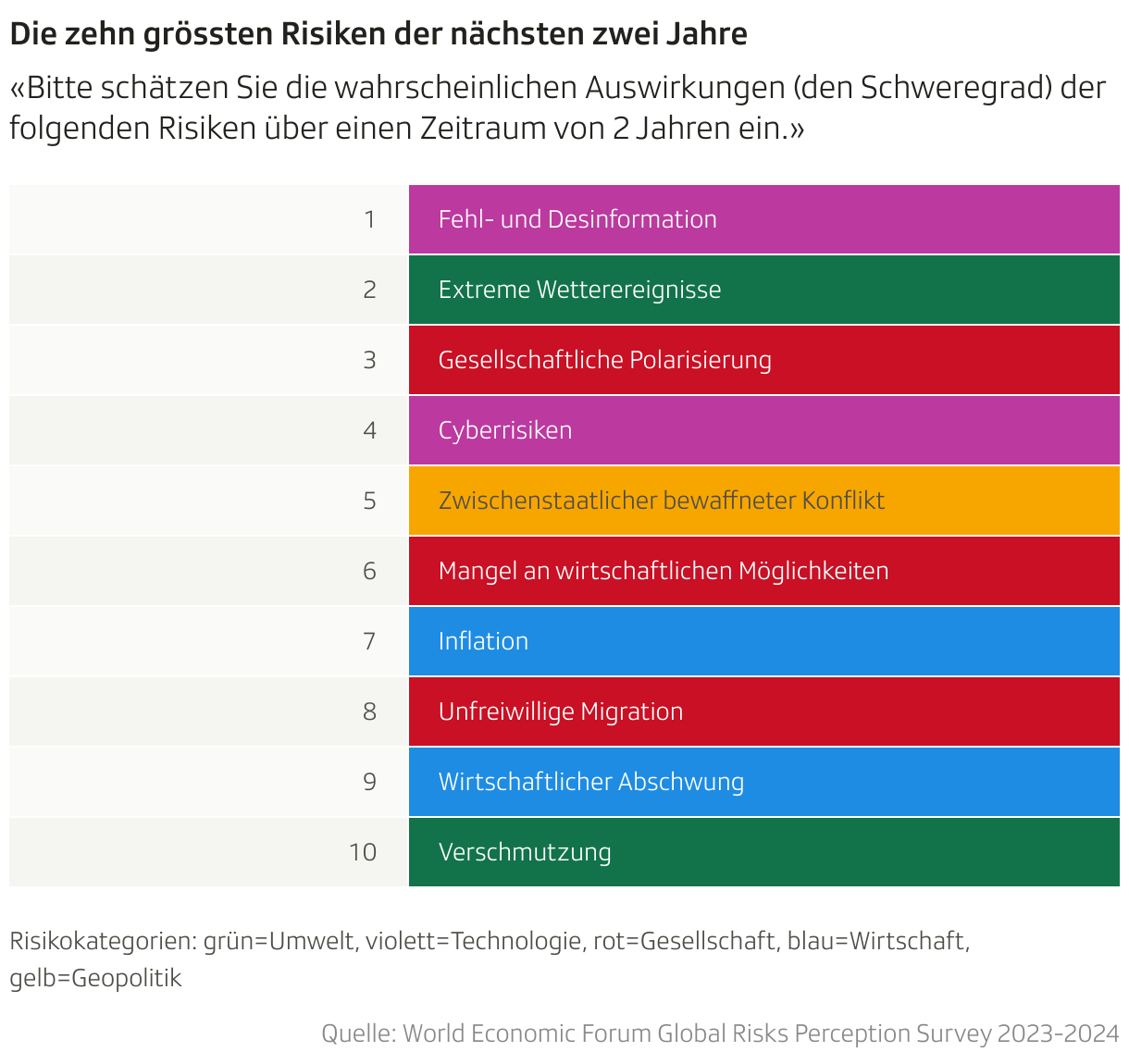- Misinformation and disinformation pose the greatest global risk in the next two years.
- The World Economic Forum (WEF) comes to this conclusion in a corresponding report.
- Extreme weather events are the biggest concern for experts and decision-makers in the long term.
“Global threats are pushing adaptability to its limits,” warns the WEF in a report. The report was created in collaboration with Zurich Insurance Group and Marsh McLennan and is based on perspectives from around 1,400 experts and decision-makers from politics and business. These were surveyed in September 2023.
Environmental risks dominate the risk scale
Among the threats for the next ten years, those related to the environment occupy the top four places. Technological and social threats are considered to be increasingly greater, in contrast to political ones, whose danger, according to experts, tends to decrease. “Misinformation and disinformation” is in fifth place, while “adverse consequences of AI technologies” is in sixth place.
In addition, around a third of these experts expect that a global catastrophe will become increasingly likely in the next two years. Two thirds see it this way for the next ten years.

Legend:
A dog looks out of a vehicle driving on a flooded road after a storm in Henley-on-Thames, England. (Image from January 5, 2024)
REUTERS/Toby Melville
A majority of experts also warn that global cooperation could decline in the next ten years. However, this is important to deal with urgent problems.
Disinformation is the biggest concern
Experts see misinformation and disinformation as the biggest threat for the next two years. “The connection between misinformation and social unrest will be a focus in elections coming in several major economies over the next two years,” the report says.
With artificial intelligence (AI), fake material can be produced quickly and reach huge numbers of voters in no time, said Carolina Klint from the consulting firm Marsh McLennan. Disruptive actions could come from home and abroad.
Interstate conflicts such as the war in Ukraine and the current Middle East conflict only rank fifth on the risk scale.
Politics and economics required
The report therefore calls for politics and business to develop new approaches to managing risks. Global cooperation should focus on rapidly developing protection mechanisms against the most disruptive new risks, it recommends. The WEF recommends more education and training so that people can protect themselves from misinformation.

